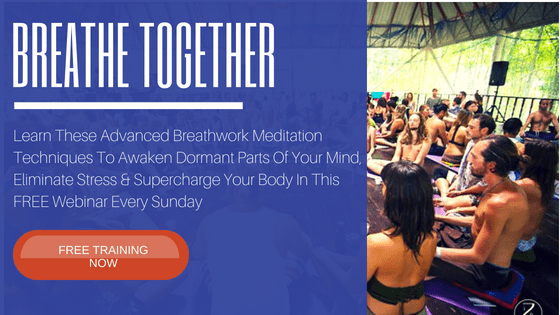Heart Rate Variability: Understanding Your Heart’s Changing Rhythm And How It Affects Your Overall Health
In this article we will discuss what heart rate variability (HRV) is, how the changing rhythm of the heart correlates to overall health and how to achieve the optimum state of Heart Coherence.
If you would like to learn a simple breathing technique to influence your Heart Rate Variability and experience your Optimum State in one session, join one my Free Sunday Webinars. Click Here.
What Is Heart Rate Variability?
It was once thought that the resting heart rate was beating at a continuous steady rhythm, and that the heart didn’t vary much from this continuous rhythm. Science has now found that this is not the case at all. In actuality scientists have found that the heart rhythms are quite irregular on a consistent basis.
This varying time interval between heartbeats, or the space between the beats of the heart, is actually what’s known as heart rate variability. Through the measurement of these beat-to-beat changes in the heart, science has been able to come to a much clearer understanding of just how much HRV is linked to our overall health and well-being.
In our normal day-to-day functioning the HRV is regulated by the autonomic nervous system (ANS). The two branches of the autonomic nervous system that are synergistically functioning in correlation with the heart, are the sympathetic and the parasympathetic nerves. The sympathetic nervous system is known as your “fight or flight” system, and acts in a way that accelerates the heart rate. Your parasympathetic nervous system is known as your “rest and digest” system, and works through the functioning of the vagus nerve to slow your heart rate down.
The sympathetic and parasympathetic system are constantly working in conjunction with each other to maintain your optimal cardiac range. This system is also continually adjusting to the bodies reactions to external and internal stimuli. Therefore we can directly see the importance of this symbiotic relationship between the heart and the autonomic nervous system. Through learning how to work with the autonomic nervous system we can greatly affect our HRV.
The Importance Of Heart Rate Variability (HRV)
Science has now found a direct correlation between optimal health and the correspondence of your HRV. Our HRV greatly reflects our ability to handle various environmental and emotional demands within our day-to-day lives. When we work in greater coherence with these internal systems in the body we can then increase our ability to handle any environmental or emotional stresses throughout our day.
Heart Rate Variability is also found to have a direct correlation to the aging of the body. When we are younger our HRV is actually found to be much greater, and as we age the HRV becomes smaller and smaller.
An important factor to determining one’s overall health is the comparison of one’s HRV to the HRV of your specific age group. If your HRV is found to be much lower than those within your specific age range it has been found to be correlated to more health problems as well as premature mortality. A lower HRV is also directly correlated to higher rates of disease in the body.
How Can We Directly Influence Our Heart Rate Variability For Optimal Health And Peak Performance
Many variables can affect our autonomic nervous system, which can greatly affect our HRV. When we learn to bring more harmony and balance to our autonomic nervous system we can begin to greatly improve our Heart Rate Variability and reverse the effects of aging.
One of the greatest factors that assists in controlling our autonomic nervous system is the practice of very specific breathing exercises. When we consciously breathe in very controlled beneficially proven ways, we can then “turn on” our sympathetic or parasympathetic nervous system at will. By simply controlling the breath we can greatly affect our Heart Rate Variability.
One of the most important set of breathing exercises that will bring about more control of the parasympathetic and sympathetic nervous systems are ancient Pranayama breathing exercises. These Pranayama breathing exercises have been utilized for centuries by Yogi’s to greatly improve overall health while at the same time producing life extension, or longevity.
Another determining factor that greatly affects your Heart Rate Variability is emotions. The HeartMath Institute has found that, “…emotions we experience directly affect our heart rhythm pattern- and this, in turn, tells us much about how our body is functioning. In general, emotional stress- including emotions such as anger, frustration, and anxiety- gives rise to heart rhythm patterns that appear irregular and erratic: the HRV waveform looks like a series of uneven, jagged peaks. Scientists call this incoherent heart rhythm pattern.”
In conjunction with this finding, the HeartMath Institute has also found that positive emotions such as, appreciation, joy, and love produces a much more harmonious heart rhythmical pattern that is called, a coherent heart rhythm pattern. When we are operating from these emotional states more frequently we can create a much more harmonious synchronization between all of the bodies systems.
It is no wonder that when we bring our focus to things that bring more joy, appreciation, and love into our lives that overall health and well being are so greatly improved.
To learn more about Heart Rate Variability and how you can optimize your body & mind, join us in one of our upcoming free breathwork meditations here







So what you mean is that HRV reflects the overall health of a person? Isn’t it? And if so we can do something to enhance our HRV? ????????